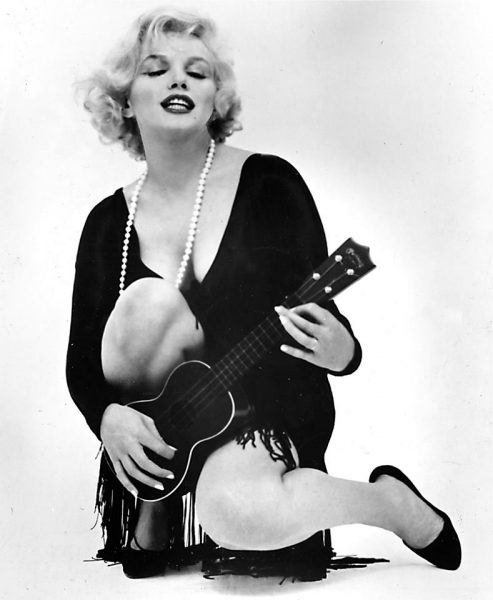
Over at Film School Rejects, Landon Palmer and Scott Beggs discuss what sets Some Like it Hot apart from other ‘gender-swapping’ comedies.
“Scott: There’s definitely a corollary with Tootsie, but it is a bit striking for 1959 (years before Don Draper!) to see the scene where Jack Lemmon gets his intimates squeezed by Bienstock on the bus. It’s a legitimate commentary on opening men’s eyes to a common reality for women — that unironically has a character named Sugar Kane.
Landon: That’s another thing I was struck by in revisiting this movie. I’ve seen other films this past year where Monroe plays a supporting role as a stock dumb blonde, but she really gets to shine here. This may be her most dimensional character.
This past year I read a Mae West biography that talks about the behind-the-scen
es world of NYC vaudeville culture in the 1920s, and the book mentions characters like Sugar and the other women in the band: exuberant, confident, hard-drinking, hard-living, and sexually liberated. The movie’s fascinating gender dynamics aren’t just in the high-concept switch, but in it’s general portrayal of young women in contrast to the ’50s housewife. Scott: Some of that seems muted now — it’s easy to watch the movie and simply see Monroe as an object being hunted, even though she does a lot of work to create a complete character. That’s something we often miss when watching stock romantic comedies. When done right, the woman being courted (tell me I wasn’t a bet!) ends up changing the man because of who she is. There’s something powerful in that. We tend to focus on the character who changes as ‘the hero,’ but stories like this tacitly reinforce that it’s men who, by and large, need to change.
Landon: Yeah, I really appreciate that Some Like It Hot doesn’t follow some of the same beats, especially that Daphne and Josephine never really get found out (the gangsters recognize them more so via the shot-up bass and some forced dialogue). There seemed to me an implication that they could go on passing as women as long as they wanted. They both ‘come out’ to their significant others in the last scene, and neither interprets it as a deception.
But I want to qualify my praise here a bit, because I’m not saying that Some Like It Hot is a radical film (despite our tongue-in-cheek headline), but simply has several rich, interesting aspects and moments that break convention.”